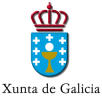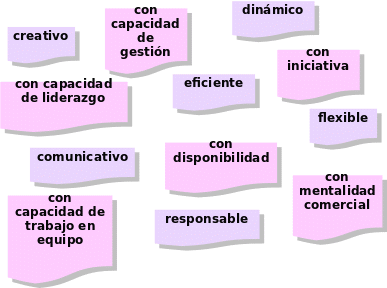gro we lobby for trade and development report on the visit to uganda by meps chris harris heaton harris and syed kamall
GRO
We lobby for trade and development
Report on the Visit to Uganda by MEPs Chris Harris Heaton Harris and
Syed Kamall
05-09 November 2007
Objectives of the Visit
*
The main objective of the visit was to learn from a Ugandan
perspective, about the obstacles to trade between Uganda and the
EU and find ways in which to build the capacity of Ugandans to
trade with the EU.
*
To better understand how the European Union hinders or helps trade
with Uganda, by allowing MEPs to meet business people, Ugandan MPs
and other stake holders.
*
To promote the idea that people to people commerce can complement
country to country trade as a positive way of encouraging economic
growth and development.
*
To learn about the general obstacles to trade locally and
regionally.
*
To explore the impact of aid on the people of Uganda .
The meetings with the Uganda Parliamentary committee on Trade, Uganda
Manufacturer's Association (UMA), Private Sector Foundation of Uganda
(PSFU) and the Uganda Export Promotion Board proved to be very useful
in meeting this objective. Furthermore, the meeting the Governor of
the Central Bank of Uganda shed more light on the general problems of
doing business in Uganda.
Major Problems raised by Ugandan business actors
a) Non-tariff barriers erected by the EU trade partners.
These included costly certification processes that are out of reach
for many small and medium enterprises. The certifications require that
exporters prove that chemical composition of Uganda soils meet
standards set by the EU. Other requirements include the use of
authorised pesticides, and sewage certification. However, members of
the private sector foundation pointed out that some of these
requirements did not make sense in a Uganda context citing for example
the sewage requirement. The EU demands proof that there is no sewage
system running close to any fields that are used for Agriculture but
in Uganda sewage systems do not extend beyond Kampala and the rest of
the country uses Pit Latrines.
b) Access to credit
Many businesses complained about the absence of credit facilities.
Where the credit was available the interest rates were an astronomical
28% .The banks demand as security the land title on which the business
is based and if the businesses do not meet the deadlines the banks
always end up selling such properties to the "highest bidder". When
the MEPs met Governor of the Central Bank, Prof. Emanuel Tumusime
Mutebile, they asked him what caused interest rates in Uganda to be so
high, the Governor explained the reasons why interest rates are very
high and these included:
I) Government competing for resources with the private sector and
where the banks preferred to lend to the government since loans to
governments were risk free.
ii) When the government brings in aid money into domestic consumption,
this puts pressure on prices leading to an increase in prices unless
central bank puts the aid in the central bank and gives the government
the shilling equivalent. To suck out the excess aid money the
government through the central bank, issues treasury bills, which
causes an increase in interest rates? Treasury bills are more
attractive for banks because they are risk free
iii) Little competition in financial sector leads to a large
population competing for few resources.
In general, the Governor said that since Uganda does not have enough
savings on its own, it needs the savings of others to afford the
investments the country needs and this can be in the form of aid. Aid,
he said is not a bad thing if the aid money is well managed so as not
to cause a disturbance on the functioning of the economy. All
governments must be committed to comparative advantage to determine
what every nation is best at producing. In this regard, there is no
need for the EU to subsidize their farmers if African farmers can
supply EU markets at the most competitive cost. Professor Mutebile
further pointed out that the role of government should be to provide
the enabling environment in which the private sector can flourish to
produce the goods and services demanded by local, regional and
international markets.
c) Complex EU assistance Programs
The EU office in Uganda often advertised for business assistance funds
but the money was almost impossible to access.
d) Lack of Information on business opportunities in the EU.
Many private companies said they lacked sufficient information on how
to access the EU. A senior official of PSFU management who represents
the organization at EU negotiations admitted that apart from building
roads, he didn't know what the EU office in Kampala did.
The MEPs had a meeting with Mr. Tom Vans, the Economy Minister at the
European Union delegation to Uganda to shed some light on the queries
raised by the Ugandan actors. Mr Tom Vans said he did not understand
why Ugandans said it was difficult to access EU funds but he admitted
that a lot of funds meant to help Ugandans went unspent every year.
Tom said that the European Union is the major donor for long term
development projects such as roads and clean water. At present the EU
is paying for the construction of the northern by pass at a cost of €
47,500,000 and the Northern corridor at a cost of €69,200,000.
On the problem of accessibility Tom said that the EU had set up
district contact centres where the rural populations can access the
EU.
Privately Ugandan MPs said the EU needs to be more accessible in
Kampala and they would like to see an info centre that explains the EU
in local languages. On the funds allocated to Uganda, the Parliament
of Uganda needs to be made aware how much funds have been allotted to
Uganda by the EU and for the EU delegation to explain to the
Parliament whenever such funds are not spent.
The Deputy Speaker of Parliament suggested that when the MEPs met the
Uganda Parliamentary committee on trade, they could have paid a
courtesy call on the office of the speaker, and that she would like to
be informed of the preparations whenever there are dignitaries coming
to the Parliament of Uganda. Peter Kisitu apologised for this
shortcoming.
Teaching
*
Jonny and Olly, the assistants of the MEPs taught at Greenhill
academy on Thursday the 1/11/2007
Syed and Chris (MEPs) taught at Ndejje University on Tuesday the
06/11/2007
Business in the European Union. Students got very concerned about the
motives of many NGOs that claim to speak for Africa.
*
Syed taught at Makerere University on Thursday the 08/11/2007
while Chris went to Iganga.
Teaching focused on a brief history of the EU and how to do business
in the EU.
Exciting opportunities at Makerere for the export of services and
bidding for outsourcing contracts.
The staff at Makerere University informed us that the IT centre at
their campus is the largest on the African continent and the ICT
facilities can be made available to support the business community in
Uganda.
Uganda Women Entrepreneurs Association
An exciting, vibrant group, well organised and eager to trade on the
international markets. However access to internet and web sites limits
ability to sell to the world. Traders ranged from coffee farmer,
fashion designer, homeopathic research institute, (researching and
using treatments and plants grown locally). One woman had 1060 women
in her organisation, all making craft goods.
Access to affordable capital is an issue as even if money can be set
aside an immediate need to say buy medicine for a sick child will send
business plan off course. (Childcare is traditionally responsibility
of the women.
The women were confident and able, but traditionally power has been
with men. It is probably helpful to note that local structures in
certain areas may inhibit equality (this was particularly well
illustrated in rural Iganga when the two women who had escorted us all
day were left outside the Town Clerk’s office when the delegation met
him – it was a small office so not everyone could fit but why did the
womaen end up outside?, -This is by no means an African issue – many
organisations allow women on committees, but don’t listen to what they
say.
Uganda Investment Authority
This organisation exists to encourage investment from outside Uganda.
They will escort investors, help sort paperwork, and generally support
those who wish to invest, work and live in Uganda. For anyone who has
view of Africa as lawless and dangerous this is an important
parastatal institution that can help to dispel your fears.
Football match
Assembly point was Uganda Parliament where we got changed into
football gear. We climbed a mini van organised by Uganda Parliament
football team led by a Police lead car.
Football match went very well, it began with a baptism by water but
both sides braved the rains. The two Meps and their assistants were
backed up by local 'mercenaries' to make up a team of 11 players. At
the final whistle, the score was 3-0 in favour of Uganda Parliament
Reception hosted in honour of the MEPs
The last event was a reception hosted by the Uganda Parliament
Football club at Hotel Emiralds. The guest of honour was the deputy
speaker of the Parliament of Uganda. A dinner and drinks were served.
After the dinner Syed was baptized Komagun by Honourable Otto while
Chris was baptized as Muloki by Honourable Kajege. Kajege wanted to
give Chris a name from Bugisu, but then Chris would have to be
circumcised there and then and since Chris may not have been ready for
the knife, he was given Muloki, a royal name that is from the region
of the Deputy Speaker.
Conclusion
My personal view is that we need more of such contacts between Ugandan
legislators, business executives, government leaders and western
leaders to provide guidance, inspiration, encouragement, share best
practices and to construct people to people (P2P) links.
There will be several benefits from this P2P formula, chief among
them, increased understanding of each other as well as the
opportunities on both sides. This better understanding of Africa is
especially crucial since the reality in Uganda deviates significantly
from what is portrayed by NGOs and the media.
The visit to Uganda was an impressive first instalment in the creation
P2P links and is a prerequisite for trade and friendship.
Follow up
1.) Icemark is one of the firms the MEPs visited. This firm is the
largest exporter of fruits and vegetables to the EU with an own
aircraft and a well developed distribution network in Belgium and the
United Kingdom.
The MEPs have already started mobilising funds to help Icemark, the
fruit and vegetable exporter they visited on the 06/11/2007. Their
target is to raise 10,000 euros by the end of the year to help this
company buy more land and employ more workers. This expansion could
create between 20-30 new jobs.
2). The MEPs are also in touch with several Micro finance institutions
to find out which one of them will be willing to extend credit to
Ugandan small business owners at interest rates of under 10% compared
to the prevailing average interest rate of 30%.
3) Football; Chris Heaton Harris MEP has already began preparations
for a football match between the Parliament of Uganda and the European
Parliament next spring. Similar arrangement is underway to host the
Uganda Parliament football club in Westminster in the first half of
2008.
4.) Links have already been created between the Uganda Women's
Entrepreneurs Association and JAKK, a 2007 award winning women's
business organisation in Finland. JAKK was voted the most innovative
organisation in 2007 in the European Union.
5) Links have also been made with Women in Parliament and in Business
in Norway on behalf of Uganda Women MPs and Uganda Women Entrepreneurs
Association.
6) In February 2008, GRO will bring a delegation of Business people
including businessmen from Knokke–Belgium to Uganda. British Labour
MEPs plan to visit Uganda around April 2008; this visit will be
confirmed in January 2008.
Recommendation
Facilitation of the GRO asbl
At the moment, GRO does not have any outside sources of funds apart
from the contribution of the three founding directors.
We appeal to the European Commission, the government of Uganda and
other interested parties to consider funding GRO in order to help it
achieve its objectives of creating Business to Business and People to
People links between the EU and Uganda.
6
 1 Ergänze Relativpronomen! (nom) 1 die Tasche nur
1 Ergänze Relativpronomen! (nom) 1 die Tasche nur CONSELLERÍA DE EDUCACIÓN E O U RÚA CASTELAO SN
CONSELLERÍA DE EDUCACIÓN E O U RÚA CASTELAO SN NÚMERO DE REFERENCIA (ASIGNADO POR EMA) DATOS GENERALES DEL
NÚMERO DE REFERENCIA (ASIGNADO POR EMA) DATOS GENERALES DEL R EPARTO CAJA RESISTENCIA HUELGA JUSTICIA HABIENDO FINALIZADO EN
R EPARTO CAJA RESISTENCIA HUELGA JUSTICIA HABIENDO FINALIZADO EN J UVENILE CRIME PREVENTION COUNCIL CERTIFICATION (CONTD) FISCAL YEAR
J UVENILE CRIME PREVENTION COUNCIL CERTIFICATION (CONTD) FISCAL YEAR EXAMEN FECHA 11XI2010 GRUPOS 4ºAB(OPCB) ALUMNO PREGUNTA 1 A
EXAMEN FECHA 11XI2010 GRUPOS 4ºAB(OPCB) ALUMNO PREGUNTA 1 A 1 HALLAR EL RESTO DE DIVIDIR A) 1
1 HALLAR EL RESTO DE DIVIDIR A) 1 ACABAS DE LEER EL CUESTIONARIO QUE HA RELLENADO UN
ACABAS DE LEER EL CUESTIONARIO QUE HA RELLENADO UN PROJEKT WSPÓŁFINANSOWANY ZE ŚRODKÓW EUROPEJSKIEGO FUNDUSZU ROZWOJU REGIONALNEGO W
PROJEKT WSPÓŁFINANSOWANY ZE ŚRODKÓW EUROPEJSKIEGO FUNDUSZU ROZWOJU REGIONALNEGO W SOLICITUD DE ACREDITACIÓN DE CENTRO O INSTITUCIÓN PARA IMPARTIR
SOLICITUD DE ACREDITACIÓN DE CENTRO O INSTITUCIÓN PARA IMPARTIR